|
During prolonged times of drought, especially towards the end of the summer, some plants just wilt, wither, dry up and die. As a result there are extreme fire hazard warnings in some areas. It’s often a very serious situation. In a similar way, the situation is even more serious in the spiritual realm, when people are dried up inside and miss out on a refreshing relationship with God. What makes this state of affairs so dangerous is that people try to cover up their spiritual dehydration by doing even more religious things. This was the problem that Isaiah had to address with the people of God. They continued to go through the religious motions. Ministry was still buzzing at a mind-numbing clip. Formal worship was upheld, but God was sick of it.
“The multitude of your sacrifices-- what are they to me?” says the Lord. “I have more than enough of burnt offerings, of rams and the fat of fattened animals; I have no pleasure in the blood of bulls and lambs and goats. When you come to appear before me, who has asked this of you, this trampling of my courts? Stop bringing meaningless offerings! Your incense is detestable to me. New Moons, Sabbaths and convocations-- I cannot bear your worthless assemblies. Your New Moon feasts and your appointed festivals I hate with all my being. They have become a burden to me; I am weary of bearing them. When you spread out your hands in prayer, I hide my eyes from you; even when you offer many prayers, I am not listening.” (Is.1:11-16 NIV) Christian leaders know about this “trampling of my courts”. They are always at the church, whenever the doors are open. “Sabbaths, convocations, assemblies and festivals” are dictating their schedules. Ceaseless activities are on their to-do-lists. Every few minutes their Blackberries go off indicating another urgent text, email, or meeting reminder. All of these activities are not bad in themselves: there is nothing wrong with sacrifices, offerings and prayer times. The problem arises, when these activities are separated from a living relationship with God. This was the core problem that Isaiah underlined right at the beginning of the chapter. According to Is.1:4, these religious practitioners had forsaken the Lord and had turned their backs on him. Such a separation from the Source of Life has obvious consequences, which Isaiah points out in v.30 (VOICE): “Like a tree that withers, like a garden without rain, you will fall apart, fade, and dry up.” Many ministry leaders are right there! The word used for wither (Heb. root NBL) can have these meanings: sink or drop down, wear out from exhaustion or from discouragement, fall like a leaf, wither like a flower, or fade. And in a metaphorical way it can also have the meaning of being senseless or foolish, i.e. their ability to reason has wilted and withered away. (Nabal was the foolish husband of Abigail -- 1.Sam.25:25). It is foolish to get so involved in religious activities that we neglect our relationship with God. Jethro recognized the symptoms in his son-in-law Moses and said to him (using the same Heb. root word NBL) in Exodus 18:18 (NIV): “You and these people who come to you will only wear yourselves out. The work is too heavy for you; you cannot handle it alone.” This is a good reminder for ministry leaders: they don’t need to, and cannot, do all the work themselves! Delegate to others! Moses listened to Jethro and prospered as a result. He focused on his relationship with God (Ex.18:19). The apostles did the same in Acts 6:4, when the immediate needs of the Hellenistic widows almost made them neglect their priorities of prayer and the ministry of the word. Blessed are those who focus on intimate communion and communication with God. They are no fools and they’ll never wither: “They are like trees planted along the riverbank, bearing fruit each season. Their leaves never wither, and they prosper in all they do.” (Ps.1:3 NLT)
0 Comments
It's great to go for a walk on Sunday mornings just before church. It might be a time that the Lord uses to speak to you in a more profound way than even during the sermon. That's what happened to me this morning as I walked around the pond next to church just worshiping the Lord of Creation. When the trail changed from gravel to asphalt I saw this tender shoot of a poplar tree breaking through the pavement. This is so Jesus! He is that tender shoot who came into this world to express the tenderness of God to all of humanity. Many rejected Him back then and still do today, but He cannot be paved over. He will always break through. True life, the God life, cannot be extinguished -- ever! None of our attempts to kill Him, to deny Him, ignore Him, reject Him, replace Him or explain Him away will succeed. He is the resurrection and the life and He will break through the pavement of our human objections and barriers and prove Himself as the Lord of Life. The grave couldn't hold Him back on that first Easter Sunday, and He is still the same today: RISEN AND WELL! Back by poplar demand.
Some people are not very fond of beavers, because they cut down trees (about 300 a year per beaver) and flood meadows by building their dams. Despite the damage they cause, they are really a very useful species. God created these giant rodents with a specific purpose, and scientist who have studied them marvel at their design: Beavers are very well adapted for swimming. Their large hind feet are webbed and make them into strong swimmers. The small front paws are not; instead they have sharp claws. With those they dig up mud and stones for their lodges and dams. They also use their back feet to spread a waterproofing oil on their fur. Their nostrils and ears can be closed when swimming. Beavers can see well under water because there is a thin see-through lid over their small eyes that functions like goggles. Their front teeth are very strong and sharp for cutting down trees and they never stop growing, but are kept at the right length because of their constant gnawing on hardwood trees. Beavers are such fascinating rodents that they have their own website. On www.beaversww.org you can read that “Beavers are more than intriguing animals with flat tails and lustrous fur. American Indians called the beaver the "sacred center" of the land because this species creates such rich, watery habitat for other mammals, fish, turtles, frogs, birds and ducks. We now know that beaver damming provides essential natural services for people too. Beavers prefer to dam streams in shallow valleys, where the flooded area becomes productive wetlands. These cradles of life support biodiversity that rivals tropical rain forests. Almost half of endangered and threatened species in North America rely upon wetlands. Freshwater wetlands have been rated as the world's most valuable land-based ecosystem. Beavers reliably and economically maintain wetlands that sponge up floodwaters, alleviate droughts and floods (because their dams keep water on the land longer), lesson erosion, raise the water table and act as the "earth's kidneys" to purify water. The latter occurs because several feet of silt collect upstream of older beaver dams, and toxics, such as pesticides, are broken down by microbes in the wetlands that beavers create. Thus, water downstream of dams is cleaner and requires less treatment for human use.” This reminds us of what the people of Israel experienced in Ex.15:23-25: “23 When they came to Marah, they could not drink its water because it was bitter. (That is why the place is called Marah.) 24 So the people grumbled against Moses, saying, “What are we to drink?” 25 Then Moses cried out to the Lord, and the Lord showed him a piece of wood. He threw it into the water, and the water became fit to drink.” Like a beaver, fulfilling his God-appointed task of throwing wood pieces into the water to dam up streams and purify their waters, Moses was given a similar task to make life in abundance possible for his people. Of course, it’s not just about providing a basis for an ecosystem of rich biodiversity! God is interested in detoxifying us from sin and unhealthy lifestyle choices, and in giving us life in abundance with Him. As Jesus said: “I came that they may have and enjoy life, and have it in abundance (to the full, till it overflows).” (Jn.10:10 AMP). And those who serve Him have the same goal of providing the most beneficial growth environment for those in their care. Paul emphasizes this in most of his epistles, but in particular in Rom.12:10-16 (NIV), where he exhorts us: “10 Be devoted to one another in love. Honor one another above yourselves. 11 Never be lacking in zeal, but keep your spiritual fervor, serving the Lord. 12 Be joyful in hope, patient in affliction, faithful in prayer. 13 Share with the Lord’s people who are in need. Practice hospitality. 14 Bless those who persecute you; bless and do not curse. 15 Rejoice with those who rejoice; mourn with those who mourn. 16 Live in harmony with one another.” Acting in this way will provide the most beneficial environment for spiritual growth. Let’s work as hard on this as beavers work on their environment! The sad cooing of mourning doves is familiar to most people. According to Wikipedia “it is one of the most abundant and widespread of all North American birds. It is also the leading gamebird, with more than 20 million birds (up to 70 million in some years) shot annually in the U.S., both for sport and for meat. Its ability to sustain its population under such pressure stems from its prolific breeding: in warm areas, one pair may raise up to six broods a year.”
(Raising that many descendants might add to their moaning and groaning, as well.) This sad sound of doves is also a matter of biblical record and a prophetic metaphor. It says in Is.59:11-13 (NASB): “All of us … moan sadly like doves; We hope for justice, but there is none, For salvation, but it is far from us. For our transgressions are multiplied before You, And our sins testify against us; For our transgressions are with us, And we know our iniquities: Transgressing and denying the Lord, And turning away from our God.” The reason why we often groan and moan is the fact of our sinfulness and its repercussions. Because we have turned away from God we cannot find justice or salvation. Our guilt problem is unresolved. Sin affects us at every step of the way. Of course, there is no lack of trying to deal with the consequences of our sin with our human resources. We go to the experts, follow the latest trends and business models, consult gurus or shrinks, conduct scientific studies, employ the newest technology, or emulate the Sinatra example “I did it my way!” These approaches are nothing new: Hosea states that “Ephraim has become like a silly dove without sense; they call to Egypt, they go to Assyria.” (Hos.7:11 NASB). God’s people had been enticed by the way of life, the sophisticated culture, the military might, and the technological advances of the superpowers and gravitated towards them, while simultaneously losing sight of God and His ways. They had become “silly doves”! Doves (that are normally not silly) were known to have a very accurate sense of direction. That’s why Noah used them after the flood to determine whether they could find back to their home: “He sent out a dove from him, to see if the water was abated from the face of the land; but the dove found no resting place for the sole of her foot, so she returned to him into the ark, for the water was on the surface of all the earth. Then he put out his hand and took her, and brought her into the ark to himself. So he waited yet another seven days; and again he sent out the dove from the ark. The dove came to him toward evening, and behold, in her beak was a freshly picked olive leaf. So Noah knew that the water was abated from the earth. Then he waited yet another seven days, and sent out the dove; but she did not return to him again.” (Gen.8:8-12 NASB). This homing pigeon found right back to its original roost. Unfortunately, many of God’s people have lost their orientation to Jesus and instead go to this world’s superpowers for direction. They have become the “silly doves” that Hosea talked about: people that have been enticed, seduced, and deceived by the world. Jonah, the prophet, whose name means “dove”, was supposed to be oriented towards God, fulfil His mission and speak in His name. But he became a silly, disoriented dove, doing what he thought best and turning away from God. Instead of being a silly dove, we need to have our homing device firmly fixed on Jesus. He is our home, our center, our life. God Himself made this abundantly clear at the baptism of Jesus, in what He did and what He said: “The moment Jesus came up out of the baptismal waters, the skies opened up and he saw God’s Spirit—it looked like a dove—descending and landing on him. And along with the Spirit, a voice: “This is my Son, chosen and marked by my love, delight of my life.” (Mt.3:16-17 MSG) If we want to move from mourning to delight, we need to focus on Him, orient ourselves towards Him and home in on Him. The words of Psalm 23 are so familiar to church-going people, that many of us read over them so quickly that we miss the significance of the message.
Talking about “quickly” – that is probably the curse of our modern, fast-paced life style. We need to do everything quickly: make instant coffee, rush to work via rapid transit, wolf down fast food, take short cuts, speed in the express lane, or hop across the ocean in a supersonic jet. There is no time for lingering, for smelling the roses, for savouring a meal, for entering into deep, meaningful conversations, for meandering along at a leisurely pace and enjoying companionship with others. “Gotta run!” is the farewell greeting of today. The remedy for such an ulcer-riddled, stressed-out, hyper-active and in the long run unsustainable life style is a closer, personal relationship with God Himself, who is “my shepherd” – literally “the one who causes me to graze”. The picture of this pastoral scene is painted beautifully here in Ps.23:1-2 in the KJV: “The Lord is my shepherd; I shall not want. He maketh me to lie down in green pastures…”. The modern VOICE translates it: “The Eternal is my shepherd, He cares for me always. He provides me rest in rich, green fields…”. The Message puts it this way: “God, my shepherd! I don’t need a thing. You have bedded me down in lush meadows…”. The picture of sheep lying down, resting and stretching out is what David, himself a shepherd, has in mind. There are other scriptures that enrich our understanding of the shepherd-sheep relationship, most of us are not familiar with. In S.o.S.1:7 we read: “Tell me … where you graze your flock and where you rest your sheep at midday.” This speaks of the tender care of the shepherd who makes sure that the sheep have enough to eat and get the necessary rest during the heat of the day. The KJV of Jer.33:12 (a prophecy of future restoration) translates the causative verb form exactly: “this place… shall be an habitation of shepherds causing their flocks to lie down.” Looking at the Hebrew grammar of Ps.23:2 (with the Hiph’il verb stem expressing causative action, and the Imperfect mood of the verb indicating an incomplete action or state being used to express habitual or customary actions) this verse literally says: “He causes me to habitually lie down and stretch out in green pastures”. Because God cares for us so deeply, He is serious about us getting our rest. That’s why He created us with a built-in need for sleep, why He has instituted a weekly day of Shabbat, of ceasing from work, and why He integrated many festival days in Israel’s calendar so His people can celebrate resting in God. Yet if we insist on going against these customary rest periods, He causes us to lie down in another way: our bodies give out, we get sick, have a nervous breakdown, or even a heart attack. That’s the built-in shut-down mechanism, the overload switch, the circuit breaker that is tripped, if we won’t stop. And it’s in a green pasture that this Shepherd causes us to lie down, not a brown, dried out and lifeless desert. Green pastures are a metaphor for hope, growth, nourishment, security, peace, beauty and abundant life bursting forth everywhere. It’s what God wants us to experience. It’s what Jesus came for. He states in Jn.10:10-11; “I have come that they may have life, and have it to the full. I am the good shepherd. The good shepherd lays down his life for the sheep.” He laid down His life so we can lie down in green pastures. Just recently the Lord stopped my frantic life style, when I had to undergo two surgeries and an extensive recovery period during which I was forced to lie down in my green reclining chair for 5 weeks. After the first surgery I was just itching to go back to work and plow through my long to-do-list. I must have overdone it, because after a few days I ended up in the hospital with emergency surgery and more recovery time to follow. Forced to slow down, my green recliner became a green pasture for me. In it I studied in my Bible, read many helpful books, spend time with my Canadian family, skyped with my German family, and enjoyed just meditating, praying and resting for many days. My Good Shepherd caused me to stretch out in green pastures – and I’m so grateful for that. With Him tending us, we will lack nothing! The granite formations of the Canadian Shield are often quite interesting. There is a rock on our property that looks a lot like a chiseled character face. It speaks to me of determination, of not being intimidated by challenges, of unflinching pursuit of a God-given mission despite strong opposition. And it reminds me of a passage in Ezekiel 3 (verses 1-11), where God says the following to the prophet: 3 He told me, “Son of man, eat what you see. Eat this book. Then go and speak to the family of Israel.” This is the prophetic commission every pastor has been given. And while the intake of God’s word is sweet as honey and nourishing to our soul, there is also the fact that many of God’s people will not listen to it and will be severely opposed to the one bringing the message. The personal attacks against the messenger are often mean, hurtful, devastating, and draining, but what’s even more of a concern for the messenger is that the people of God, won’t listen to God, reject God Himself and rebel openly against His lordship. This is more than just a difference of opinion, these people jeopardize an intimate relationship with God and even their eternal destiny. Obviously this affects those who are entrusted with the soul-care of God’s people. They wonder whether they have been too harsh, failed in the teaching of the truth, not cared enough for the individual, not offered the necessary help and support, etc. They second guess their calling, wondering whether they are really cut out for this task. They are dismayed by the lack of results, lack of success, and lack of response. They are intimidated by the backlash. They even wander away from God themselves. And many have nervous breakdowns, suffer from depression, or quit the ministry altogether. What are God’s instructions in a case like this? It’s all about listening obediently to God’s word, about eating it, ingesting the truth, being nourished by it, getting it inside of us and making it our own. Not doing that was the failure of the people of God. The prophet of God should never make the same mistake. Rather: by listening to God and doing His will, in spite of opposition even from God’s people, and in spite of not achieving a positive response, God will make our face as hard as rock, so we can withstand the fiercest attacks and continue on our mission for Him.  To stay warm for the long winter months, we need to gather a lot of firewood. As I was splitting and stacking wood just a few hours before the first snow fell, I had a lot of time to think. These menial chores don’t have to be a bore and do not only provide an opportunity for fresh air and vigorous exercise, they are also wonderful opportunities to meditate and mull things over in my mind. And since I was working with firewood, I started thinking about firewood and went on from there. The first story that came to mind was the one from Acts 28, where Paul collected firewood and was then bitten by a poisonous snake, but never suffered any ill effects. What really stood out to me was the phrase in v.3, which Eugene Peterson translates this way in the Message: “Paul pitched in and helped”. We tend to read over these little phrases and don’t think much about them, but they can be quite significant. Let me get into some of the background: Paul had been in prison for over two years waiting to get to trial in Rome (Acts 24:27). Finally he got on a prisoner transport across the Mediterranean. Paul warned the crew of impending disaster, but they did not listen (Acts 27:10). Soon after leaving the safety of the harbour a severe storm arose and everyone on board feared for their lives. At the height of the crisis, Paul, the prisoner, steps up and takes leadership, preventing widespread panic. He encourages people to strengthen themselves by eating and assures them of safety for their lives, on the basis of an angel of God appearance to Paul in the midst of this stormy night (Acts 27:13-34). While the ship ran on ground and broke up, all 276 people made it safely to shore. Soaking wet and cold, it was obvious that that a big fire was needed to warm up these shivering survivors. The locals started the fire, but Paul, the aging scholar, with the thorn in the flesh, (that many theologians think was some sort of visual impairment and would explain why Paul didn’t see the viper or even mixed it up with a stick), this great apostle, missionary and church planter, the leader in the crisis, the prophet of hope, was doing the most menial task of bending down and picking up sticks for the fire. This was normally a task for slaves. In fact, Israel had in the past enslaved the left over native population to be woodcutters and water carriers (Josh.9), but now Paul took on the form of a bond-servant, although there were another 276 people who could have done this menial task. And it’s not just Paul who acts like and calls himself a bond-servant of Jesus Christ (as in Rom.1:1): it’s also Timothy (Phil.1:1), Epaphras (Col.1:7), Tychicus (Col.4:7), James (Jam.1:1), Peter (2.Pet.1:1), Jude (Jude 1:1), and John (Rev.1:1). All of them did not just have the title of servant, but acted like servants. That’s so much like Jesus, the Servant of God, (predicted by Isaiah in his great servant songs) “who, although He existed in the form of God, did not regard equality with God a thing to be grasped, but emptied Himself, taking the form of a bond-servant, and being made in the likeness of men. Being found in appearance as a man, He humbled Himself” (Phil.2:6-8). Just as Jesus came “not to be served, but to serve” (Matt.20:28) so Paul imitated his Lord by doing the most humble chores and also advised others in spiritual leadership to not lord it over those in their charge and to serve by example (1.Pet.5:3). As ministers (from Latin ministrare "to serve, attend, wait upon"), we are by definition servants. And so it’s only right for us to gather firewood, to not be too good to perform menial chores, and to do whatever is necessary to serve others and express the love and character of Jesus to them. Rick Warren summarized Jesus’ mission quite well: So let’s imitate Jesus and Paul and pitch in and help. During the dark days of winter, when the sky is overcast and ominous storm clouds form, when everything is cold and colourless, when we can’t see what’s happening under the surface of the water or in the deep woods, when it’s easy to feel all alone, left in the dark and thoroughly depressed, that’s when God in His grace, often busts open the clouds and lets the light shine through. All of a sudden the warm glow of God’s love reflects off the icy surface of our circumstances, and brightens our day with a glimpse of hope. God is revealing Himself to us and gives us a real certainty of comfort and hope.
Isaiah relied on that hope so much, that although he speaks of a future event, he uses the prophetic past to express his certainty in what is to happen. The New King James Version translates the familiar passage of Isaiah 9:2 this way: “The people who walked in darkness have seen a great light; Those who dwelt in the land of the shadow of death, upon them a light has shined.” That light is then defined by Isaiah in some of the following verses as a person, whom he describes as a Child born to us, a Son given to us, on whose shoulders all rule and authority will rest; and His name will be called Wonderful, Counsellor, Mighty God, Everlasting Father, Prince of Peace. And of the increase of His government and peace there will be no end. Just soaking in these terms, meditating on them, and recognizing the reality of this promise brings us peace, gives us direction, and produces warmth, awe and wonder. This is not just a news brief about some intimidating superstar that knows everything, can do everything and is everywhere present, but it’s about a child that we have access to, that has been born to us, has been given to us and brings real peace, shalom, wholeness and spiritual health to us. No one but Jesus fits that bill! He is that great light that shines into our darkness, whatever that darkness might be: financial worries, health issues, family crises, ministry blunders, icy relationships, loneliness, fears about the future, etc. Think for a minute about the darkness that tends to envelop you, but then look at that bright, warm, colourful, exquisite, comforting light that we have in Jesus. He knows what’s best for us. He has the power to do something about our situation. He forever cares for us like a loving father. And He gives us that peace that surpasses all understanding. There is a break in the clouds. God is reaching down to us. The light shines brightly. Soak Him in!  The belted kingfisher is a common sight along the lakes of cottage country. This colourful bird is so typically Canadian, that it was even featured on the $5 bill at one time. As the name implies, kingfishers enjoy fishing. They fly South in the winter. And they always look as if they have just pulled their tuques off their heads and have a serious case of “bad-hair-day”. The scientific name of the kingfisher is alcyon, which is its Greek equivalent. According to Greek legend, the Mediterranean relative of the kingfisher, was granted the gift of calm weather for its nesting period. The story is told that the distraught queen Alcyone jumped into the sea in grief after her husband’s loss in a shipwreck. The gods took pity, turned both husband and wife into kingfishers and stilled the winds for two weeks around the time of the winter solstice each year, a time still known as the halcyon days. Kingfisher Crossing is intended to provide such a period of calmness, peace and untroubled tranquility, away from the storms, turbulences and stiff cross winds of life. It’s a place that wants to make room for the King of kings to cross paths with His fishers of men. It’s an opportunity for worn out fishers of men to rest, to let their hair down and to be re-energized as they spend time with their King walking and talking along the lakeshore. Jesus Himself invites all of us: “Are you tired? Worn out? Burned out on religion? Come to me. Get away with me and you’ll recover your life. I’ll show you how to take a real rest. Walk with me and work with me—watch how I do it. Learn the unforced rhythms of grace. I won’t lay anything heavy or ill-fitting on you. Keep company with me and you’ll learn to live freely and lightly.” (Mt.11:28-30 MSG) At another time Jesus said to His disciples: “Come off by yourselves; let’s take a break and get a little rest.” For there was constant coming and going. They didn’t even have time to eat. So they got in the boat and went off to a remote place by themselves.” (Mk.6:31-32 MSG) This shows us that Jesus is not a slave driver, merely intent on us performing tasks and producing results. He is interested first and foremost in a personal relationship with His people, something a lot of ministry leaders tend to forget. He really cares for them! As the Good Shepherd, Jesus shepherds His under-shepherds in the ways of Psalm 23 (expressed in The Voice like this): “1 The Eternal is my shepherd, He cares for me always. 2 He provides me rest in rich, green fields beside streams of refreshing water. He soothes my fears; 3 He makes me whole again, steering me off worn, hard paths to roads where truth and righteousness echo His name.” It really is all about being made whole again by the Good Shepherd, about focusing on His name – on Himself, about allowing Him to care for us, and to provide rest and refreshment for us. Halcyon days at Kingfisher Crossing are wonderful opportunities. But no pause, no place, and no program can produce peace. Only the person of the Prince of Peace can! Enjoy the relationship with Him! 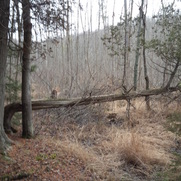 Going for a walk on Sunday morning before church has become a habit for me now. Even dreary days in the bush seem to be better than sunny ones in the big city. There are always interesting things to see in nature and God uses them to speak into my life. These walks have become for me pre-service worship. This past Sunday, as I was hiking the trails, I noticed the many cedar trees that had been bent over by either heavy snow loads or strong windstorms or maybe even a rock slide. The interesting thing with these trees is, that they are still very much alive even decades after these disasters. And you can tell this from the branches that have turned into little trees themselves growing at a 90 degree angle right up from the knocked-down trunk of the original tree. Yes, they are definitely bent out of shape and look a bit gnarled, but they just keep on growing and doing their tree-thing, which is among other things, cleaning the air of carbon emissions, keeping erosion in check, providing a habitat for many other creatures, and producing a lot of fresh oxygen for us to breath in. The dictionary defines “gnarled” as bent; twisted; as having a rugged, weather-beaten appearance – or as being crabby and cantankerous. The surfers of the 70’s introduced us to a new meaning of the word “gnarly” which in their slang terminology described a dangerous wave that they saw as a great challenge to ride, and so the word came to express “excellent, wonderful”. And so in New Zealand the word simply means “good, or great”. Interesting: there are two ways to respond to hardships. We can either become cantakerous and crabby, or we can make the best out of a dangerous and difficult situation and become a testimony to God’s good, great, wonderful and excellent life-transforming power. Our daughter Katie, who is teaching a kindergarten class in Malawi, Africa, just recently experienced her whole classroom being flooded. It was a big mess. But instead of moping about it they mopped it up and then she wrote a story about the kindergarten classroom that went for a swim. She illustrated it with photos of the clean-up and different cartoons and made it into a fun picture book for her class. They absolutely loved it. What a way to turn a mess into a message! It’s what Churchill did on October 29, 1941 during the middle of WW2 after Britain had endured the 37 weeks of the Blitzkrieg, when he addressed his old school with these words: “Never give in, never give in, never, never, never, never-in nothing, great or small, large or petty—never give in except to convictions of honour and good sense. Never yield to force; never yield to the apparently overwhelming might of the enemy.” Don’t allow the storms and heavy loads of life to destroy you. While they may bend you, injure you, and scar you, they can also make you stronger in character and help you have more of a positive influence than if you’d never had to undergo those trials. God wants to turn your mess into a message of hope. The apostle Paul was, what some might call a “mess-magnet” (or another less refined term). He attracted trouble like honey attracts flies: shipwrecks, beatings, stonings, dangers of all kinds, and of course many imprisonments and trials. He could have easily become a cantakerous, crabby old man. But even after being stripped naked, beaten with rods and mercilessly floggesd he sings praises to God (Acts 16:22-25) and even from the depth of a dungeon he can write a letter of joy like Philippians. So when he writes in 2 Cor.4:9 about being “knocked down but not destroyed” it’s not just a nice theological, theoretical sentiment, but a bloody life experience about which he testifies. Here is how the VOICE puts it (in 2.Cor.4:8-11): “We are cracked and chipped from our afflictions on all sides, but we are not crushed by them. We are bewildered at times, but we do not give in to despair. We are persecuted, but we have not been abandoned. We have been knocked down, but we are not destroyed. We always carry around in our bodies the reality of the brutal death and suffering of Jesus. As a result, His resurrection life rises and reveals its wondrous power in our bodies as well. For while we live, we are constantly handed over to death on account of Jesus so that His life may be revealed even in our mortal bodies of flesh.” Like those cedars, (damaged and bent by heavy loads, strong winds or dangerous rock slides), we too get bent out of shape. The church is a gnarly bunch. We are far from perfect and have many flaws. We are cracked, chipped, bewildered and knocked down. But with our strong connection to the Rock, Jesus, we will not be knocked out. Yes, we will always carry around in our bodies the reality of the brutal death and suffering of Jesus, but we also get to reveal something of the wondrous power of His resurrection life through our frail human frame. Even though bent and gnarly, there is still green growth happening: we are still salt and light for our society; we still keep moral erosion in check, we still provide a habitat for many people, we still produce a lot of fresh hope, that enables people to breath in deeply. |
AuthorsWe are a pastoral couple named Stefan & Heidi König. We have many years of experience in various ministries, and are thankful that God has given us this property to use as a way to bless others who need a place to relax and reconnect with Him. Kingfisher Spiritual Direction
Direct your heart to Jesus and restore your soul. If you need to hear from God, to grow deeper with Him, consider spiritual direction. An ancient discipline of soul care, Heidi is trained to prayerfully lead you in this practice. Archives
January 2018
|
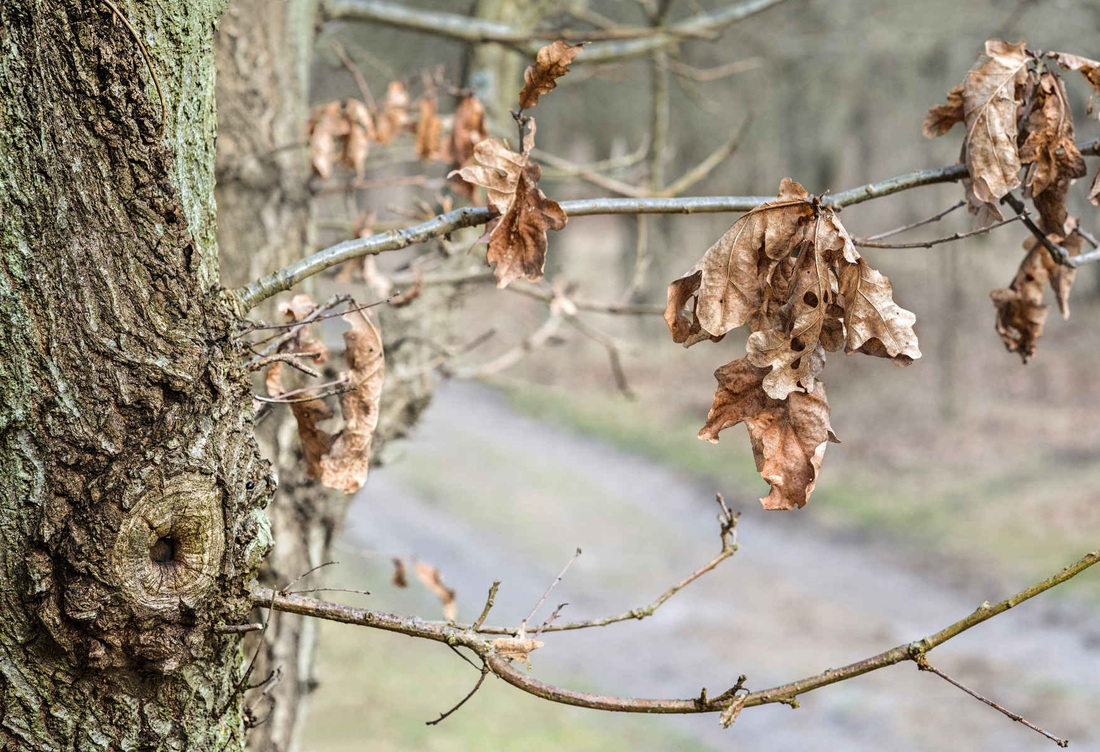
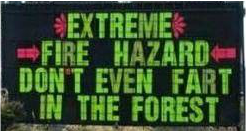

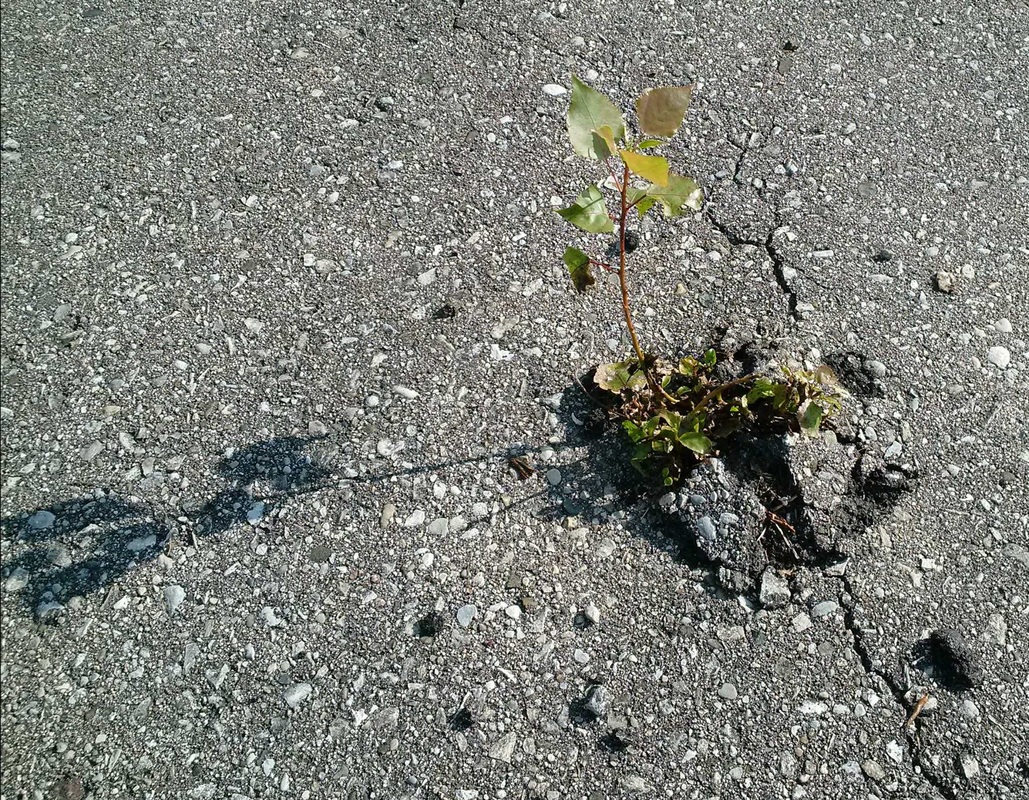








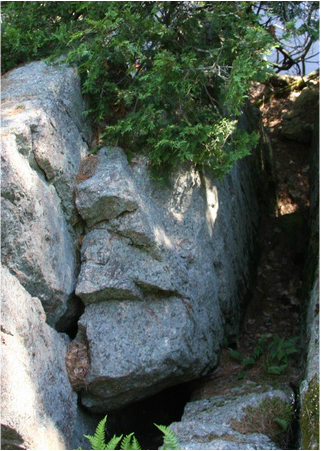

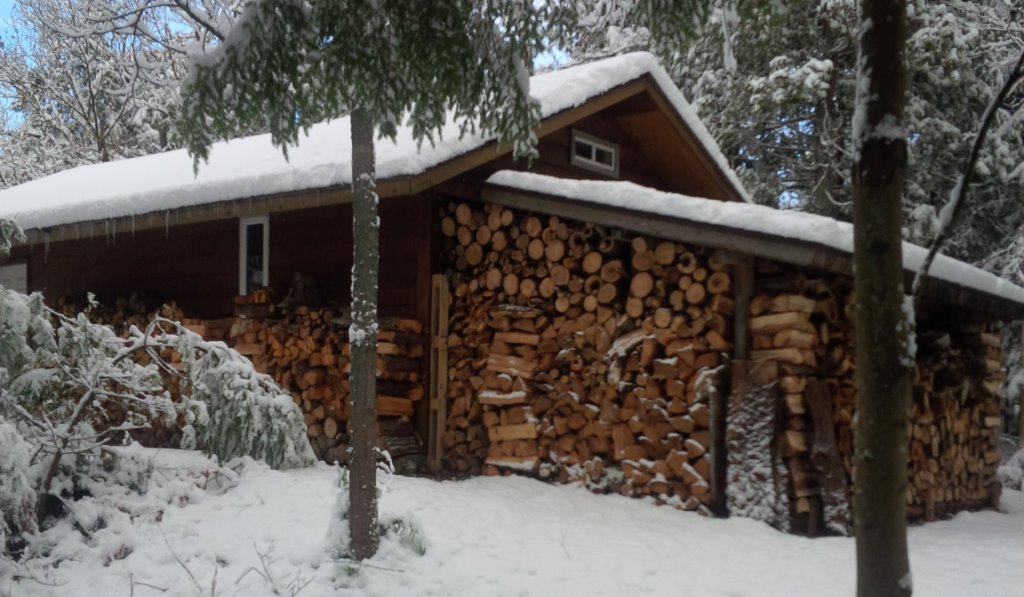

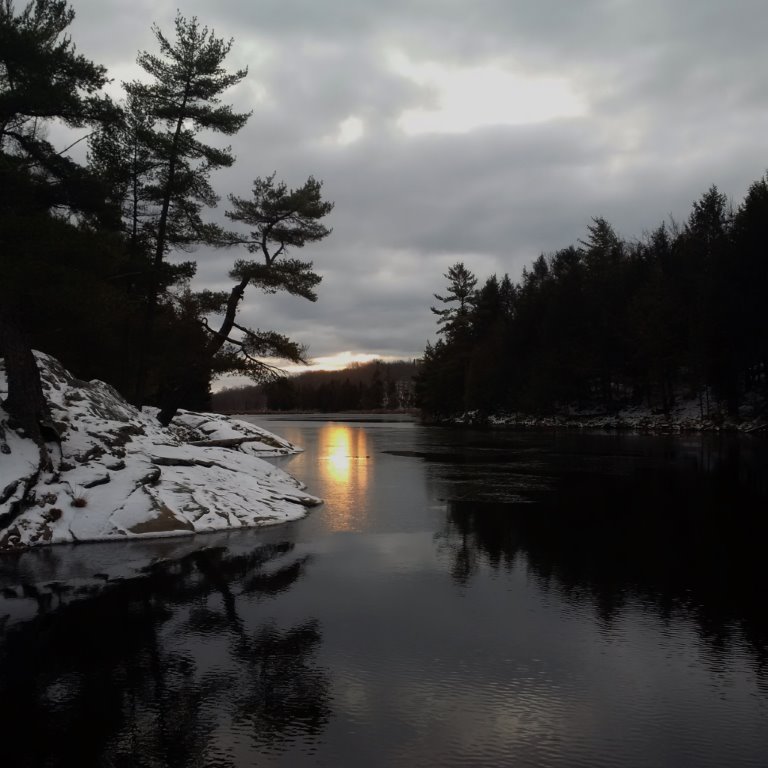


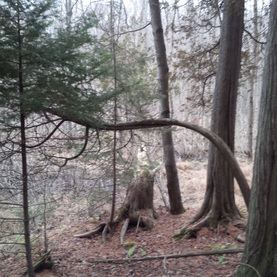
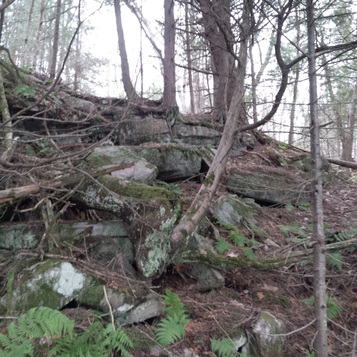


 RSS Feed
RSS Feed
